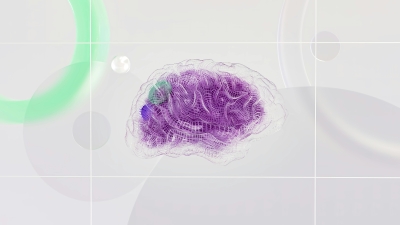Can alcohol cause premature aging?
Can alcohol cause premature aging?
A study conducted by the University of Nagoya in Japan shows an association between the harmful effects of aldehydes on DNA, which may be related to premature aging.
It is known that aging is a normal developmental process involving physiological changes (1). Additionally, the body is influenced by environmental and sociocultural factors such as quality of life, lifestyle, diet, sedentarism, and physical exercise, which are directly related to healthy or pathological aging (1).
In light of this, alcohol consumption has been cited as a factor that may be involved in the process of premature aging. A British study (2) aimed at investigating the effects of alcohol on aging showed that excessive alcohol consumption can damage DNA, specifically in telomeres – repetitive structures of proteins and DNA that form the ends of chromosomes and act to prevent genetic material wear and tear. According to the study, increased oxidative stress caused by excessive alcohol may directly contribute to the shortening of these DNA structures.
Similarly, a recent Japanese study published in the journal Nature Cell Biology (3) demonstrated how the harmful effects of aldehydes on DNA may also be associated with premature aging. But where does alcohol fit into this scenario?
After alcohol ingestion, ethanol is rapidly absorbed by our body. Alcohol metabolism begins with the action of the enzyme alcohol dehydrogenase (ADH), which converts alcohol into acetaldehyde, a substance that is toxic to the body even in small concentrations. Then, the enzyme aldehyde dehydrogenase (ALDH) converts acetaldehyde into acetate.
The study points out that aldehydes are genotoxic agents* because they interfere with DNA-protein replication and transcription, and such types of damage are particularly harmful since they can lead to cell death if not repaired. As a result, researchers suggest that aldehydes as metabolic by-products are associated with premature aging.
The research first identified a previously uncharacterized DNA repair pathway: transcription-coupled DNA-protein crosslink repair. As a result, the study showed that transcription-coupled DNA-protein repair, as well as aldehyde clearance, were crucial for protection against metabolic genotoxins. This could explain the molecular pathogenesis of AMeDS (aldehyde metabolic deficiency syndrome, characterized by bone marrow deficiency, intellectual deficiency and dwarfism) and other disorders associated with defects in transcription-coupled repair, such as Cockayne syndrome (rare, autosomal recessive disorder, with unknown pathogenesis and with impairment in growth and progressive neurological dysfunction).
According to researchers (4), this study has implications beyond genetic diseases, as its findings suggest that aldehyde-induced DNA damage may also play a role in the aging process in healthy individuals. They also mention the importance of strategies to combat aging in healthy individuals, such as controlling exposure to substances that induce aldehyde production, such as alcohol intake and exposure to pollution and smoke.
*Genotoxic agents are those that interact with DNA producing changes in its structure or function.
References:
- Santos FH dos, Andrade VM, Bueno OFA. Envelhecimento: um processo multifatorial. Psicologia em Estudo [Internet]. 2009 Mar 1;14:3–10. Available from: https://www.scielo.br/j/pe/a/FmvzytBwzYqPBv6x6sMzXFq/
- Topiwala A, Taschler B, Ebmeier KP, Smith S, Zhou H, Levey DF, et al. Alcohol consumption and telomere length: Mendelian randomization clarifies alcohol’s effects. Molecular Psychiatry [Internet]. 2022 Jul 26;1–8. Available from: https://www.nature.com/articles/s41380-022-01690-9#Sec10
3. Oka Y, Nakazawa Y, Shimada M, Ogi T. Endogenous aldehyde-induced DNA–protein crosslinks are resolved by transcription-coupled repair. Nature Cell Biology [Internet]. 2024 Apr 10;1–13. Available from: https://www.nature.com/articles/s41556-024-01401-2
- Impact of aldehydes on DNA damage and aging [Internet]. NU Research Information. [cited 2024 Jul 1]. Available from: https://www.nagoya-u.ac.jp/researchinfo/result-en/2024/04/20240411-01.html











